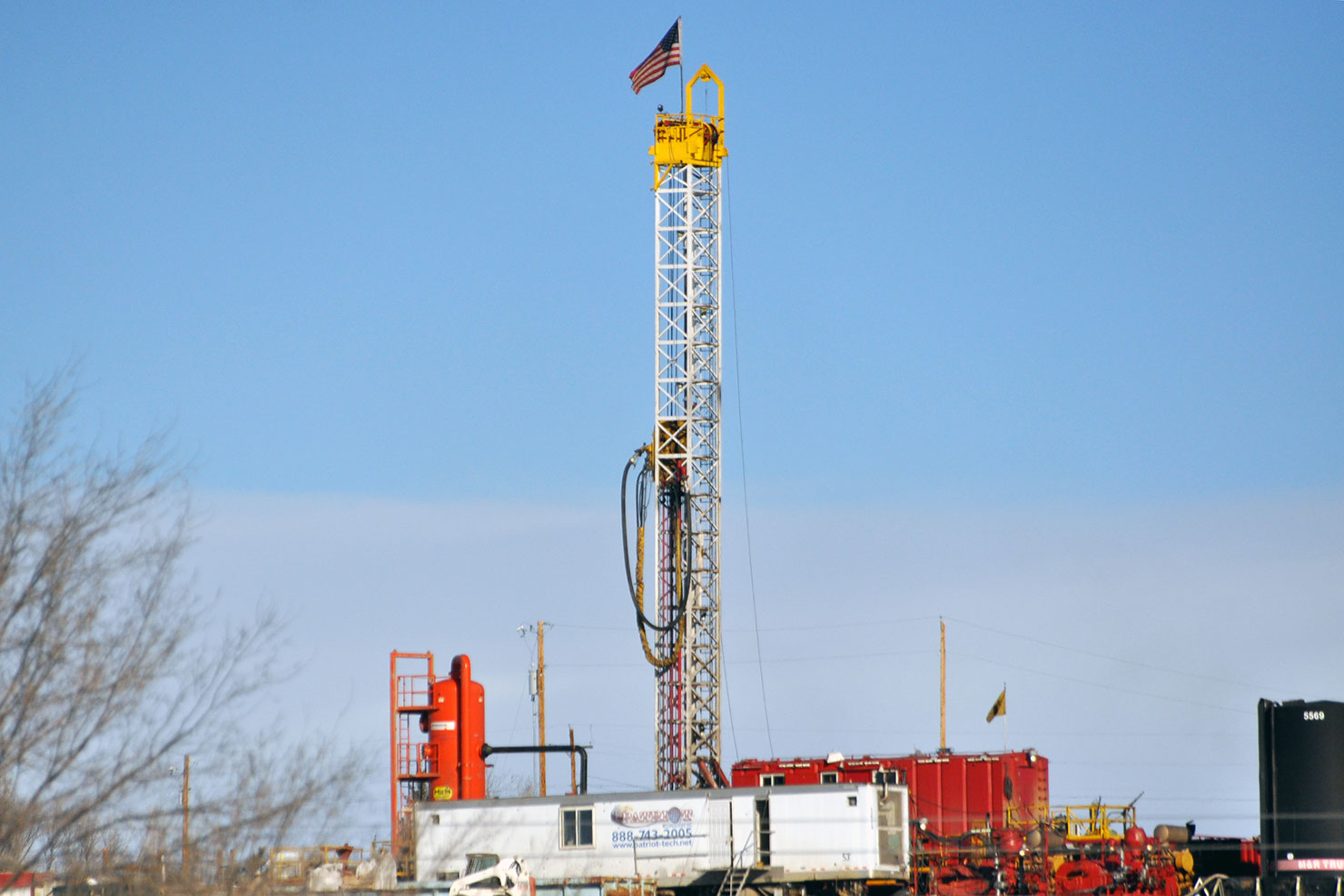In recent days, BP has begun setting up infrastructure to drill on the Southern Ute Tribal K1/K4 behind Powwow Circle Drive. According to the Department of Energy (DOE), drilling will occur from Feb. 2 – Feb.15. The location is very visible to the residents on the bluff as well as to the Tribal campus. Residents living on Powwow Circle, Sunset Meadows, County Roads 314 and 315 and possibly Northridge, will be able to see part of the well operations.
BP will be drilling horizontally to reach the Fruitland Coalbed methane using an aerated drilling method. The aerated drilling method uses a combination of air and water, in proper ratio, to achieve full circulation returns. Drilling with this method has minimal impact to the environment. This method also requires a process called flaring. There is a possibility of intermittent flaring throughout this operation.
Flaring is the burning of the natural gases that the well is producing but not capturing. These gases that rise from the well will be contained and burned off as a safety precaution. Intermittent flaring is a normal part of operations, and is in fact a vital part of safe and responsible drilling operations. If the gases were released into the air, it cannot be contained and has the potential to combust and become flammable if contact is made with the appropriate sources. Methane is also a greenhouse gas and burning reduces the overall impact to the environment.
This is a temporary measure during drilling only and once completed the gas will be routed to a production line.
The downside to the flaring process is the visible flame.
Measures are being taken to protect the residents from the light produced by mobile light towers that are required for the employees to work overnight. Unfortunately, there is not a way to protect residents from the visibility of flaring. The Bureau of Land Management approves venting/flaring for up to 30 days; this well is scheduled to flare potentially half of that time. BP has committed to minimize as much flaring as possible without impacting site safety.
The Tribe’s Environmental Programs Division Air Quality Program has been made aware of the new well location and will continue working with the DOE. If the membership has any questions or concerns, they can reach Karen Spray with DOE at 970-563-5556.

